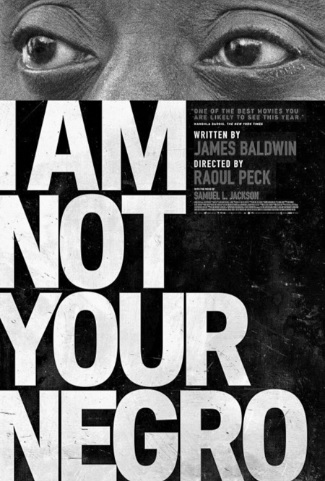By Ricardo A. Hazell
The Shadow League

James Baldwin has been dead for over 30 years. I kept telling myself that as the words, images and thoughts of the essayist, author and thinker James Baldwin flickered across the screen of the new documentary, I Am Not Your Negro, directed by Raoul Peck. Amid the turmoil that befalls us daily on a local, state and federal level, the words of Baldwin remind us of who we are as a nation.
Across time and space, his words strum the cords of our modern reality in ways that even string theory couldn’t have foretold. It was a multimedia postcard that perfectly describes our current standing in life. A chilling scene comes to mind when familiar images of Martin Luther King Jr., Malcolm X and Medgar Evers are introduced anew through the words of Baldwin, threading their lives and tragic deaths together as an indictment upon the American experiment.
Today, instead of killing off black “leadership”, the mechanism of white supremacy manifests themselves in the killings of Trayvon Martin, Eric Garner, Mike Brown, Philando Castile and countless others. But what was somewhat ambiguous to white folks back then has become far more apparent now. However, the thick miasma of apathy and ignorance that plagued much of mainstream America decades ago has only gotten more pervasive.
I Am Not Your Negro also gives invaluable insight into the fight against white supremacy in the past, and how little has changed in many regards. Director Raoul Peck masterfully meshes together footage of Baldwin at speaking engagements, popular culture film references of yesteryear, his letters to his publishers, and other philosophical summations of the author.
The narration by Samuel L. Jackson envelopes the entire production in yet another layer of unapologetic negritude. A favorite scene of mine is Baldwin’s account of a gathering of black intellectuals that included author/playwright Lorraine Hansberry in a meeting with Attorney General Robert F. Kennedy.
I don’t want to spoil too much for the potential viewer, but Hansberry’s apparent Black Girl Magic was all over the affair as she sassily rebuked Kennedy’s arrogance and weak overtures. Old photographs were used depicting Hansberry as young, vibrant and beautiful. How I longed to know more of her and was reminded of the shame in her early passing at the age of 34.
Also, it was interesting to see the black literati at odds with the Kennedy’s, considering that they were considered progressive royalty by many, then and today. That’s a far cry from the ambiguousness Baldwin believed they often illustrated on racial matters. Fascinating stuff.
Through Baldwin, we see that we are indeed one with the past. We bear its scars and suffer the consequences of its mistakes. But after a while, mistakes stop being mistakes, they’re choices. America has chosen this path and only she can hope to change it. I, like Baldwin before me, am hopeful.
The Academy Award-nominated documentary is as relevant today as it would have been 30 years ago. But I do somberly reflect that said relevance is indicative of American societal rot, rather than cultural evolution. Overall, it’s a great piece of work worthy of its subject matter.
This story originally appeared on TheShadowLeague.com, a site dedicated to journalistically sound sports coverage with a cultural perspective that insightfully informs sports fans worldwide.




